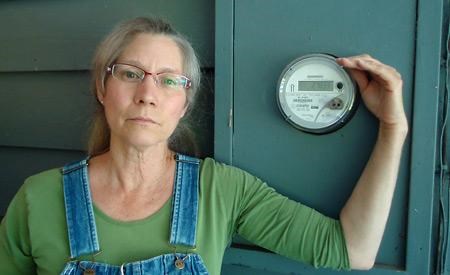Since smart meters became mandatory in 2010, over 96 per cent of BC has switched over. Now, a group of persistent Powell River residents is receiving the opportunity to hold onto their analogs.
Smart meters are devices that measure the electricity consumption of a house and communicate the information to a service provider through wireless technology. According to BC Hydro, they communicate faster and more accurately than analog meters, and can better accommodate new sources of renewable energy.
In 2010, the passing of the Clean Energy Act allowed BC Hydro to implement smart meters in all BC households and businesses. Though the project was due to finish by 2012, residents who reject smart meters due to health and privacy concerns are still holding out.
Now, the provincial government has stopped insisting unwilling participants need to install a smart meter.
The estimated 60,000 people who still have analog meters will likely be able to have digital meters that don’t transmit radio signals placed on the edge of their property, according to Bill Bennett, minister of energy and mines. People who want a non-transmitting meter will probably have to pay an additional installation fee, plus a fee to have someone conduct meter readings on a regular basis.
For some in Powell River, this change has been a long time coming. Wendy Pelton has been an avid opponent of the program since it first started. She said she saw the installation of smart meters on people who don’t want them as “the death of democracy for the people in this province.”
In early 2011, Pelton formed a smart meter working group as part of the Occupy Powell River movement. The group went on a couple of marches, including one to Nicholas Simons’ office, MLA for Powell River-Sunshine Coast, on Anti-Bullying Day.
The working group evolved into the Analog Meter Lovers’ Network, an email list of about 45 people. The list, explained Pelton, is used to share articles, personal experiences and problems.
She said the list was extremely useful when people were put under pressure to change their meters. Pelton used early January as an example, when Corix Utilities, the company installing smart meters into homes throughout BC, visited people in the district who still had analogs. “Theoretically, they were there to answer questions,” she said, “but they put a lot of pressure on people to change their meters.”
During this time, the email list was used to alert each other when the Corix truck was near by.
Before the compromise announced last week, workers were allowed to install a new smart meter without the property owner’s consent as long as the meter was outside the house.
BC Hydro asserts visits and phone calls to smart meter holdouts were tactful and meant to help.
“It’s important for us to understand what customers’ concerns are with the new meters,” said Cindy Verschoor, manager of communications for smart meters. “What we’re finding is that when we have a chance to talk to customers directly, they often decide to accept a meter.”
In an interview with the Vancouver Sun, Verschoor said the opt-out program will likely also be offered to those who already have smart meters installed and don’t want them.
The list of reasons people are against smart meters runs long. Some are worried about their health. Electromagnetic radiation has been linked to fatigue and migraines and is classified by the World Health Organization as a possible carcinogenic. However, radiation released by the meter is still well below international and national limits. Others are worried that the meters are an invasion of privacy and can easily be hacked.
Bennett has emphasized that although BC Hydro is looking at an opt-out program, the corporation still maintains that there are no legitimate issues with the meters.
Pelton still maintains reservations as well. “This isn’t really a solution,” she said. “It’s a good thing in terms of individual rights, but if you look at the bigger picture, it’s not going to save the planet from smart meters’ negative effects.”



